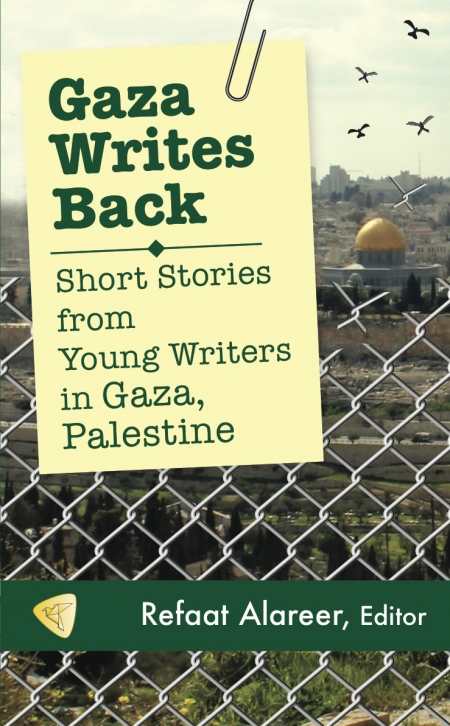Gaza Writes Back
Short Stories from Young Writers in Gaza, Palestine
The brevity of these pieces allows for reflection on the urgency of day-to-day life in the Middle East.
Fiction can reveal truths that are difficult to face directly. That’s the case with Gaza Writes Back, Refaat Alareer’s stunning and sobering collection of short fiction by young-adult Palestinian writers. The twenty-three pieces in this collection offer fictional yet hyperreal experiences during the Gaza War, also known as the Cast Lead Operation. While no two stories are exactly the same, they all carry a palpable sense of urgency and expose a violent, terroristic world that few of us have seen so clearly before.
Alareer, a literature and creative-writing professor at the Islamic University-Gaza, has selected these stories as much for their unique voice as for the particular place and time they illuminate. All are originally written in English, though their authors’ first language is Arabic. This allows a “much-needed Palestinian youth narrative without the mediation or influences of translation or of non-Palestinian voices,” writes Alareer in his introductory notes.
The pieces themselves are short. A few entries are only three pages long. The spare format reflects the urgency of day-to-day life during the Gaza War, when one bomb blast could change a family’s fate in a second. There’s no time to explain it all, so we drop into people’s lives mid-flow and experience the disruptions of war along with them. One minute, a child watches a football match in the street, and the next all he can see is smoke, blood, and his neighbors running for shelter.
The writers are a talented lot, most of them current or former graduate students who worked with Alareer. But the editor’s own contributions rise above the other slice-of-life vignettes to become thought-provoking, allegorical lessons in human nature. In “House,” for instance, we are privy to a twisted psychological power struggle between the occupiers and the occupied. Similarly, in “The Old Man and the Stone,” Alareer uses symbols to show the strengths and weaknesses of knowledge, innocence, and faith. These more complex pieces stand out as stories you will want to read again, to yourself and to others.
Gaza Writes Back is not an easy book to read, but it effectively shines light on the effects of war on the civilians caught in the crossfire. Readers will come away with a deeper understanding of Middle East politics and the mind-set of the latest generation to live amidst the ongoing struggles there.
Reviewed by
Sheila M. Trask
Disclosure: This article is not an endorsement, but a review. The publisher of this book provided free copies of the book to have their book reviewed by a professional reviewer. No fee was paid by the publisher for this review. Foreword Reviews only recommends books that we love. Foreword Magazine, Inc. is disclosing this in accordance with the Federal Trade Commission’s 16 CFR, Part 255.

